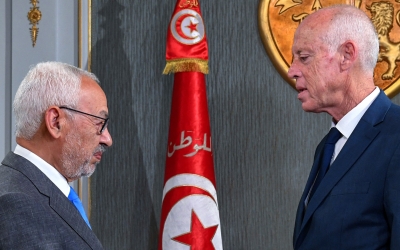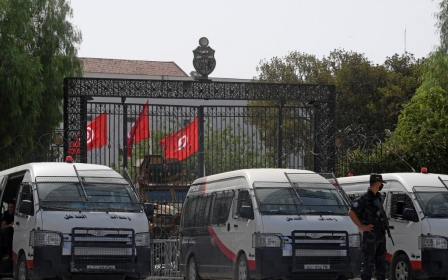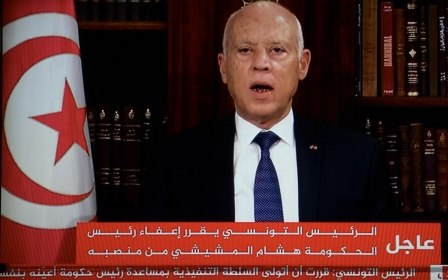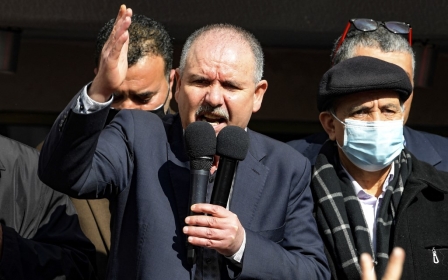Tunisia coup: Law experts split on whether president Saied's power move is legal
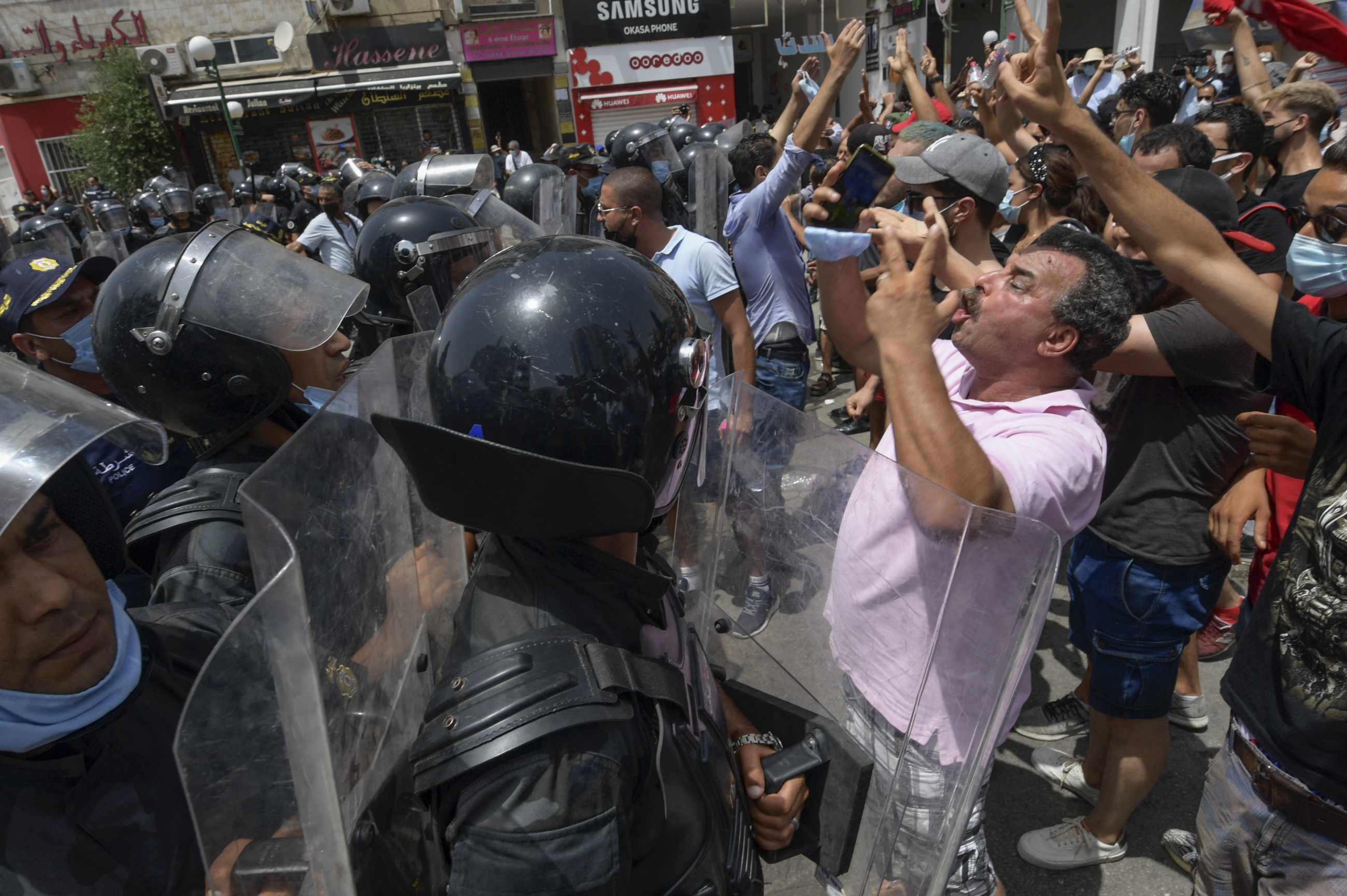
In the days following the Tunisian President Kais Saied’s move to oust his government and suspend parliament, questions have swirled around the constitutional legitimacy of his actions and his invoking of Article 80.
Article 80, a common arrangement in constitutions around the world, provides guidance for an emergency situation in which a country’s state institutions have ceased to function properly.
'All this has amounted to a coup that Tunisia will pay for dearly'
- Sana Ben Achour, law professor
In the Tunisian constitution, it is written that "measures necessitated by this exception situation" can be used, but that there must be a consultation with the speaker of parliament and that the constitutional court must be informed - an institution that has not yet been created in Tunisia, despite the revolution’s promises.
New MEE newsletter: Jerusalem Dispatch
Sign up to get the latest insights and analysis on Israel-Palestine, alongside Turkey Unpacked and other MEE newsletters
"The question is – was Tunisia actually in this situation or not?" asks Zaid al-Ali, a Tunis-based constitutional lawyer, in a phone interview with MEE.
Tunisian law professor Sana Ben Achour says that many Tunisians believe it was.
“The management of the country since 2011 has been catastrophic. Ennahda brought the country to its knees. In many people’s eyes, Kais Saied’s decision can be interpreted as a 'way out of the crisis' because Tunisians no longer support the context in which they live," said Ben Achour in an interview with l'Humanité.
"The wages are miserable, there are no future prospects, unemployment hits more than three million Tunisians out of 12 million inhabitants, and we have seen in the midst of this [Covid-19] health crisis, more than 300 deaths per day.”
'End to democratic hope'
In a statement the Tunisian Association of Constitutional Law, while warning against the perils of concentrating power in the hands of one man, seemed to give cautious support to the president’s decision to intervene given the dire political situation in the country.
However, Ben Achour, who specialises in democratic law and public rights, and has been an ardent critic of Ennahda over the years, says that the president's actions have dealt a serious blow to Tunisia’s democracy.
“Saied left the constitutional framework under the guise of Article 80 of the 2014 constitution, but the situation in the country did not require this use,” Ben Achour said.
"All this has amounted to a coup that Tunisia will pay for dearly. By doing so, President Saied puts an end to democratic hope in Tunisia, but also in the Arab world, since we were the one and only remaining democratic bastion.”
Many have criticised Saied's decision to suspend parliament. Crucially, Tunisia’s Article 80 dictates that parliament must continue to sit in session once it has been invoked – Saied's decision thus fundamentally contradicts what is written in the constitution.
Ali says the problem lies in the wording of Article 80, which is very vague and open-ended, and that Saied is only partially applying its conditions.
"None of the measures Saied announced are provided for in the constitution,” said Ali.
Another major issue is Tunisia’s absence of a constitutional court - one of the main, unfulfilled promises of the 2011 revolution. The process to set up the court has been long-beleaguered by political obstacles, including moves to block its creation from Saied himself.
The absence of the court means that there is now no mechanism to evaluate whether the circumstances were appropriate to invoke Article 80.
“In the absence of the constitutional court the president has the exclusive right of interpretation,” said Rabeh Kraifi, a law professor, arguing that Saied’s actions were legal.
However Ali says the president is overstepping his powers, and should seek a solution that involves the parliament and parties. "The only way to resolve this is therefore politically, rather than legislatively or judicially," said Ali.
This article is available in French on Middle East Eye French edition.
Middle East Eye delivers independent and unrivalled coverage and analysis of the Middle East, North Africa and beyond. To learn more about republishing this content and the associated fees, please fill out this form. More about MEE can be found here.


